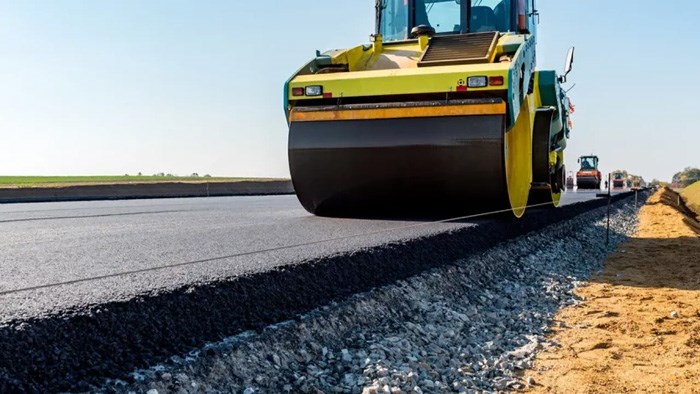Separate studies in Manitoba and Alberta are looking at the potential of using recycled asphalt roof shingles and recycled plastic to pave the Prairie highways and industrial parks of the future,
Ninety tons of asphalt roofing shingles torn off about four dozen houses in around Winnipeg will be used in a new Manitoba recycling pilot program aimed at using the asphalt in road paving.
The Winnipeg area produces more than 30,000 tonnes of tear-off shingles every year that end up in landfills and take approximately 300 years to break down, explained Manitoba Infrastructure Minister Ron Schuler
“Our government is making great efforts to invest in eco-friendly infrastructure in support of transforming waste in Manitoba,” said Schuler. “Being able to divert reusable waste from our landfills, such as shingles, allows our province to reduce its environmental footprint.”
The pilot program, launched October 1, will focus on paving a new road near Winnipeg’s Brady Landfill, with a mix the asphalt with binding and other agents.
Manitoba Infrastructure, in conjunction with the University of Manitoba, will conduct ongoing testing of the pavement conditions over the next five years to monitor its performance.
“We will continue to monitor [the pilot paving project] for differences in long-term performance such as cracking and rutting,” said Schuler. “As we all know, nature offers us a variety of weather conditions and we can monitor if the paving materials stand up to Manitoba’s harsh climate.”
Testing and monitoring will allow data to be collected and analyzed for future planning of construction projects using environmentally friendly recycled materials, he said.
The concept is not new – using recycled asphalt shingles for road construction peaked in 2014 according to the U.S.-based Asphalt Shingle Recycling Systems. That year, a study from the U.S. Federal Highway Administration reported premature cracking in relatively new asphalt pavements. The agency found the common factor among the cracked roads was a relatively high use of recycled asphalt shingles.
A parallel drop in concrete prices also led to a decline in the use of recycled asphalt shingles for highway construction.
Recycled plastic
Meanwhile in Alberta, Sturgeon County residents will get to test-drive roads made from recycled plastic next year as part of a Northern Alberta Institute of Technology (NAIT), research project.
Sturgeon County council agreed October 27 to provide $30,000 of in-kind support to the Asphalt Paving Applied Research Project.
A partnership between NAIT, Lafarge Canada and GreenMantra Technologies, the project is part of a 10-year, $10 million collaboration with Inter Pipeline which aims to find ways to turn waste plastics into new products.
Other teams have tested this asphalt in warmer climates, and the NAIT team wants to see how it performs under Alberta weather, according to Sturgeon County utilities manager Jeff Yanew.
Yanew said NAIT had asked Sturgeon and Strathcona County to test their experimental asphalt. The county would likely deploy test strips of it in an industrial park and on a lower-traffic road next year.
Sturgeon County Mayor Alanna Hnatiw noted that the recycling concept fits in well with the county’s plastic industries and the federal government’s recent moves to ban some single-use plastics. “This is innovative work and I’m more than happy to be able to support it.”
Inter Pipeline is expected to unveil more details on the program in November.
Recycled plastics in roads has been around for decades but has yet to catch on in the industry, said Hugh Donovan, St. Albert resident and now-retired head of the City of Edmonton’s road materials testing and quality assurance lab, in an email. The City of Edmonton first used it back in the 1980s when it ground up Fisher Price toys to use on Terwillegar Drive, and had several road mixes that used non-recycled plastics.
Donovan said many road departments have toyed with recycled plastics in asphalt, but few have studied its long-term performance.
“It’s a nice idea, and it might work, but prove to me that it is something that will provide a benefit to the pavement and not just [a way to] get rid of something we can’t get rid of anywhere else,” he said.
Strathcona County is scheduled to vote on this project sometime in November, said county spokesperson Jennifer Moncion.
With Kevin Ma, St. Albert Gazette



